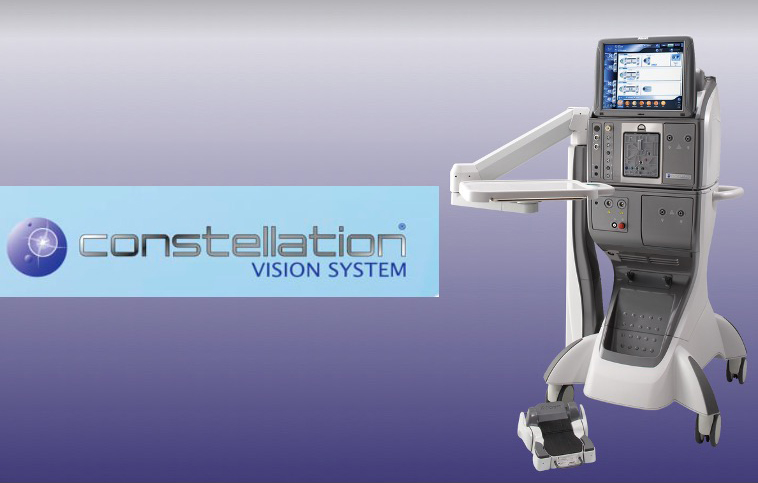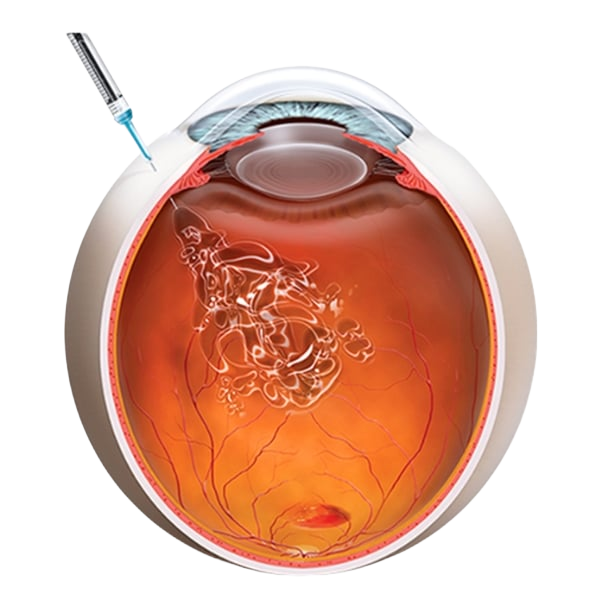Services
Vitreo-Retina & Uvea Services
Advanced Retinal and Uvea Care at Kapoor Eye Hospital – Preserving Vision with Precision
Services
Vitreo-Retina & Uvea Services
Advanced Retinal and Uvea Care at Kapoor Eye Hospital – Preserving Vision with Precision
Your retina and uvea form the foundation of your vision. Diseases affecting these delicate structures can cause serious, sometimes irreversible vision loss — often without early symptoms.
At Kapoor Eye Hospital, we offer comprehensive, technology-driven care for all retinal and uveal disorders, combining early detection, advanced imaging, laser therapy, and microsurgical expertise.
Our AIIMS-trained retina and uvea specialists lead a dedicated team equipped with the world’s most advanced diagnostic and surgical systems, ensuring the highest standard of care for every patient.
Protecting Vision Through Early Detection and Advanced Treatment
Diabetes is one of the leading causes of preventable blindness. Over time, it can damage the small blood vessels of the retina, leading to Diabetic Retinopathy — a condition that may remain silent until vision loss occurs in its advanced stages.
At Kapoor Eye Hospital, we believe timely screening and intervention are the keys to preserving sight. Every diabetic patient, whether newly diagnosed or long-standing, should undergo annual retinal evaluation and imaging.
Our Diabetic Eye Care Includes:
Retinal Screening & Imaging
Comprehensive dilated retinal examination for all diabetic patients.
Fundus photography, OCT (Optical Coherence Tomography), and Fluorescein Angiography (FFA) for early and accurate detection.
Regular follow-up imaging to monitor disease progression and treatment response.
Early detection and timely laser intervention can completely prevent blindness due to ROP. If your baby was born premature, schedule an ROP screening at Kapoor Eye Hospital within 3–4 weeks of birth.
Protecting Vision Through Early Detection and Advanced Treatment
Diabetes is one of the leading causes of preventable blindness. Over time, it can damage the small blood vessels of the retina, leading to Diabetic Retinopathy — a condition that may remain silent until vision loss occurs in its advanced stages.
At Kapoor Eye Hospital, we believe timely screening and intervention are the keys to preserving sight. Every diabetic patient, whether newly diagnosed or long-standing, should undergo annual retinal evaluation and imaging.
Our Diabetic Eye Care Includes:
Retinal Screening & Imaging
Comprehensive dilated retinal examination for all diabetic patients.
Fundus photography, OCT (Optical Coherence Tomography), and Fluorescein Angiography (FFA) for early and accurate detection.
Regular follow-up imaging to monitor disease progression and treatment response.
Early detection and timely laser intervention can completely prevent blindness due to ROP. If your baby was born premature, schedule an ROP screening at Kapoor Eye Hospital within 3–4 weeks of birth.
Anti-VEGF & Intravitreal Therapy
For Diabetic Macular Edema (DME) and Proliferative Diabetic Retinopathy (PDR), we offer the latest, evidence-based intravitreal treatments using globally trusted agents:
Faricimab (Vabysmo)
Brolucizumab (Beovu)
Aflibercept (Eylea)
Ranibizumab (Lucentis)
Ozurdex (Dexamethasone Intravitreal Implant) for sustained control of macular edema and inflammation, providing long-term visual improvement with fewer injections.
These injections help reduce retinal swelling, improve vision, and prevent further damage with excellent efficacy and safety profiles.
Green Laser (Pan-Retinal Photocoagulation – PRP)
Our advanced multispot pattern-scanning green laser system delivers quick, precise, and comfortable treatment to ischemic retinal areas, halting the progression of proliferative diabetic retinopathy and reducing the risk of bleeding and retinal detachment.
Advanced Retinal Surgery for Diabetic Eye Disease
When complications such as vitreous hemorrhage or tractional retinal detachment occur, our vitreoretinal surgeons perform delicate surgery using the Alcon Constellation® Vitrectomy System — the most sophisticated retinal surgery platform available.
This ensures safety, precision, and faster recovery for patients with complex diabetic eye conditions.
Early Detection Prevents Retinal Detachment
High myopia (short-sightedness) increases the risk of retinal thinning, lattice degeneration, and retinal holes, which can lead to retinal detachment if untreated.
At Kapoor Eye Hospital, we emphasize preventive retinal screening for all myopic individuals, especially those with:
Flashes of light or sudden floaters
Blurring or curtain-like vision loss
Strong family history of retinal detachment
Our Retinal Screening & Treatment Includes:
Retinal imaging and detailed indirect ophthalmoscopy to identify weak retinal areas.
Laser Barrage Photocoagulation using advanced multispot green laser to seal retinal holes and lattices — preventing future detachment.
Early preventive laser therapy can save sight and prevent vision-threatening emergencies.
Early Detection Prevents Retinal Detachment
High myopia (short-sightedness) increases the risk of retinal thinning, lattice degeneration, and retinal holes, which can lead to retinal detachment if untreated.
At Kapoor Eye Hospital, we emphasize preventive retinal screening for all myopic individuals, especially those with:
Flashes of light or sudden floaters
Blurring or curtain-like vision loss
Strong family history of retinal detachment
Our Retinal Screening & Treatment Includes:
Retinal imaging and detailed indirect ophthalmoscopy to identify weak retinal areas.
Laser Barrage Photocoagulation using advanced multispot green laser to seal retinal holes and lattices — preventing future detachment.
Early preventive laser therapy can save sight and prevent vision-threatening emergencies.
At Kapoor Eye Hospital, we perform advanced retinal microsurgery using the Alcon Constellation® Vision System — the global gold standard in vitrectomy technology.
This system enables ultra-high precision, faster fluidics, and safer outcomes for even the most complex vitreoretinal diseases.
Conditions Treated with Advanced Vitrectomy:
1. Retinal Detachment Repair and reattachment using microincision, sutureless techniques.
2. Macular Hole & Epiretinal Membrane Delicate peeling to restore central vision.
4. Diabetic Eye Disease & Vitreous HemorrhageClearing non-resolving bleeding and traction membranes.
5. Ocular Trauma & Eye Infections (Endophthalmitis) – Emergency repair and infection management to preserve sight.
Each surgery is performed by skilled retina surgeons under high magnification and real-time digital visualization, ensuring maximum safety and rapid visual recovery.
Uveitis refers to inflammation inside the eye involving the uveal tract (iris, ciliary body, and choroid). It can cause pain, redness, light sensitivity, and blurred vision, and if untreated, may lead to permanent damage to the retina and optic nerve.
At Kapoor Eye Hospital, we offer individualized diagnosis and management for all types of uveitis — anterior, intermediate, posterior, and panuveitis.
Our Uveitis Care Includes:
Comprehensive clinical evaluation by uvea specialists.
Advanced imaging (OCT, fundus fluorescein angiography, ultrasound) for detailed assessment.
Targeted laboratory investigations to identify underlying systemic or infectious causes.
Tailored treatment plans including steroid and immunomodulatory therapy, biological agents, and laser or surgical intervention when necessary.
We collaborate closely with rheumatologists and infectious disease experts to ensure holistic, long-term control and visual preservation.
AIIMS-trained retina and uvea specialists with extensive experience.
World-class diagnostic and surgical technology (OCT, FFA, Green Laser, Alcon Constellation® system).
Complete diabetic eye and myopia screening programs for early prevention.
Latest Anti-VEGF & Ozurdex therapies for effective macular disease management.
Comprehensive Uveitis Clinic offering customized care and long-term disease control.
Ethical, compassionate, and patient-centered approach to every case.
See Beyond Today – Protect Your Vision for Life
Your retina and uvea silently sustain your sight every day. Don’t wait for vision loss to begin care.
At Kapoor Eye Hospital, our expert team provides comprehensive diagnosis, advanced medical therapy, and precision microsurgery — all under one roof.
✨ Book your retinal and uveitis evaluation today and safeguard your vision for the future.
If you Have Any Questions Schedule an Appointment, With Our Doctor OR Call Us On
+91 9829231946



